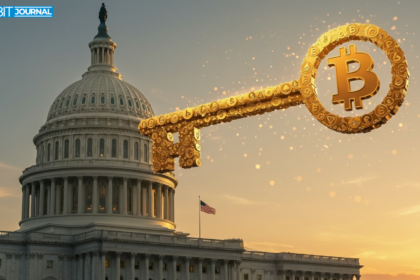President Donald Trump has signed an executive order to develop a U.S. sovereign wealth fund. An unprecedented initiative to create a government-controlled investment fund in an effort to bolster economic growth and amplify financial stability, the possible result may be a reshaping of global investment strategies. However, with the U.S. national debt having eclipsed $36 trillion, critics question the feasibility of such a fund.
The Vision Behind Trump’s Sovereign Wealth Fund
According to news sources, during the signing ceremony, Trump said a U.S. sovereign wealth fund could be used as a long-term economic tool, similar to what other countries have already done. He reportedly cited Saudi Arabia’s Public Investment Fund, which is valued at close to $925 billion, as a model of how sovereign wealth can help increase national wealth and global influence.
“I think in a short period of time, we’d have one of the biggest funds.” – Donald Trump, U.S. President
The administration has allegedly hinted at strategic investments, including a possible deal with TikTok, the Chinese-owned social media platform under continuous regulatory scrutiny by the U.S. Though the details remain scanty, that would insinuate the scope for investment by the fund could be as broad as in technology, infrastructure, and financial markets.
Trump vs. Biden: Contrasting Economic Strategies
The idea of a U.S. sovereign wealth fund may have bipartisan interest, but Trump’s would be far different from his predecessor, Joe Biden. The Trump administration’s business-friendly stance, like its efforts at deregulation and tax incentives, fits an aggressive investment strategy.
One big point of difference is crypto regulation. While the Biden Administration has imposed stricter controls on crypto companies, Trump has emerged as more crypto-friendly. His administration has actively worked on rolling back previous restrictions and fostering innovation in blockchain. He is therefore known to many as the “crypto president.”.

Congressional Hearing on Crypto and Sovereign Wealth Fund Implications
With financial reform high on Trump’s agenda, Congress is poised to examine allegations of the Biden presidency utilizing regulatory strong-arming of crypto firms. Coinbase’s Chief Legal Officer, Paul Grewal, will allegedly testify before lawmakers on allegations that federal regulators covertly strong-armed banks into dumping crypto companies, a practice some have termed “Operation Choke Point 2.0.”.
“The Biden administration’s actions against crypto firms require full transparency. We need to ensure that financial innovation is not being stifled.” – Paul Grewal, Coinbase CLO
That’s the title of a hearing that could have wide-ranging implications for the future of crypto regulation in the United States, particularly under Trump‘s pro-business administration: “Operation Choke Point 2.0: The Biden Administration’s Efforts to Put Crypto in the Crosshairs.”
Expert Analysis: Can the U.S. Afford a Sovereign Wealth Fund?
Economists and finance experts alike have questioned the establishment of a sovereign wealth fund at a time when the country’s debt is at an all-time high.
“Successful sovereign funds are typically those created by countries with budget surpluses and rich natural resources-neither of which the U.S. currently enjoys,” says Mark Crosby, Director of Monash University’s Bachelor of International Business Program. For a country that has a lot of debt, like the United States, it doesn’t make that much sense.”
Similarly, Dr. Katherine Huang, a senior economist at Global Macro Insights, noted that a sovereign wealth fund’s effectiveness depends on how it is financed:
“If the fund relies on deficit spending or additional government borrowing, it could exacerbate financial instability rather than provide long-term economic benefits.”

Meanwhile, Michael Reynolds, former Federal Reserve policy advisor, believed that a well-structured sovereign fund would stabilize U.S. financial markets by acting counter-cyclically during economic slowdowns. This, he again emphasized, will be possible if it has great governance and very thoughtful capital allocation.
Sarah Daniels, Horizon Capital’s investment strategist, thinks it could be one geopolitical tool that strengthens U.S. economic influence:
“A sovereign wealth fund could enable the U.S. to strategically invest in emerging markets and key industries, strengthening its position in global economic policymaking.”
What’s Next for the U.S. Sovereign Wealth Fund?
Trump’s executive order opens the door to a financial turnaround, but basic questions remain open: How would the fund be financed-would it depend upon government borrowing or find alternative streams of revenue? What kind of assets would this target? Is it infrastructure, technology, or money markets?
Perhaps most importantly, Can the United States keep the economy stable when managing such a giant sovereign wealth fund? With crypto regulations currently undergoing Congressional hearings, and global markets watching every step of the way, the success or failure of Trump’s sovereign wealth fund could shape U.S. financial policy for years to come.
The BIT Journal is available around the clock, providing you with updated information about the state of the crypto world. Follow us on Twitter and LinkedIn, and join our Telegram channel.
FAQs
What is a sovereign wealth fund?
A sovereign wealth fund (SWF) is a government-controlled investment fund that manages national assets to generate long-term financial returns. Countries like Saudi Arabia, Norway, and China use SWFs to invest in global markets, infrastructure, and technology.
How does the U.S. sovereign wealth fund compare to others?
Unlike Saudi Arabia’s PIF ($925B) or Norway’s SWF ($1.4T), the U.S. does not currently have a government-run investment fund. Trump’s initiative seeks to establish one, though details on funding sources remain unclear.
How could the sovereign wealth fund impact crypto regulations?
Trump’s administration is seen as crypto-friendly, and easing regulatory pressure could drive more institutional adoption. However, Congressional hearings on past regulatory actions could shape future policies.
What challenges does the U.S. sovereign wealth fund face?
The biggest challenges include:
High national debt ($36T), which could limit funding
Regulatory uncertainty on government-led investments
Potential political opposition
Glossary
Sovereign Wealth Fund (SWF): A government-controlled investment fund that manages national assets to generate long-term financial returns.
Public Investment Fund (PIF): Saudi Arabia’s sovereign wealth fund, valued at over $925 billion.
Crypto Regulation: Government policies governing cryptocurrency exchanges, assets, and transactions.
Operation Choke Point 2.0: Alleged regulatory efforts under Biden to limit crypto firms’ banking access.
Infrastructure Investment: Government-led funding into roads, energy, and tech to boost economic growth.




























